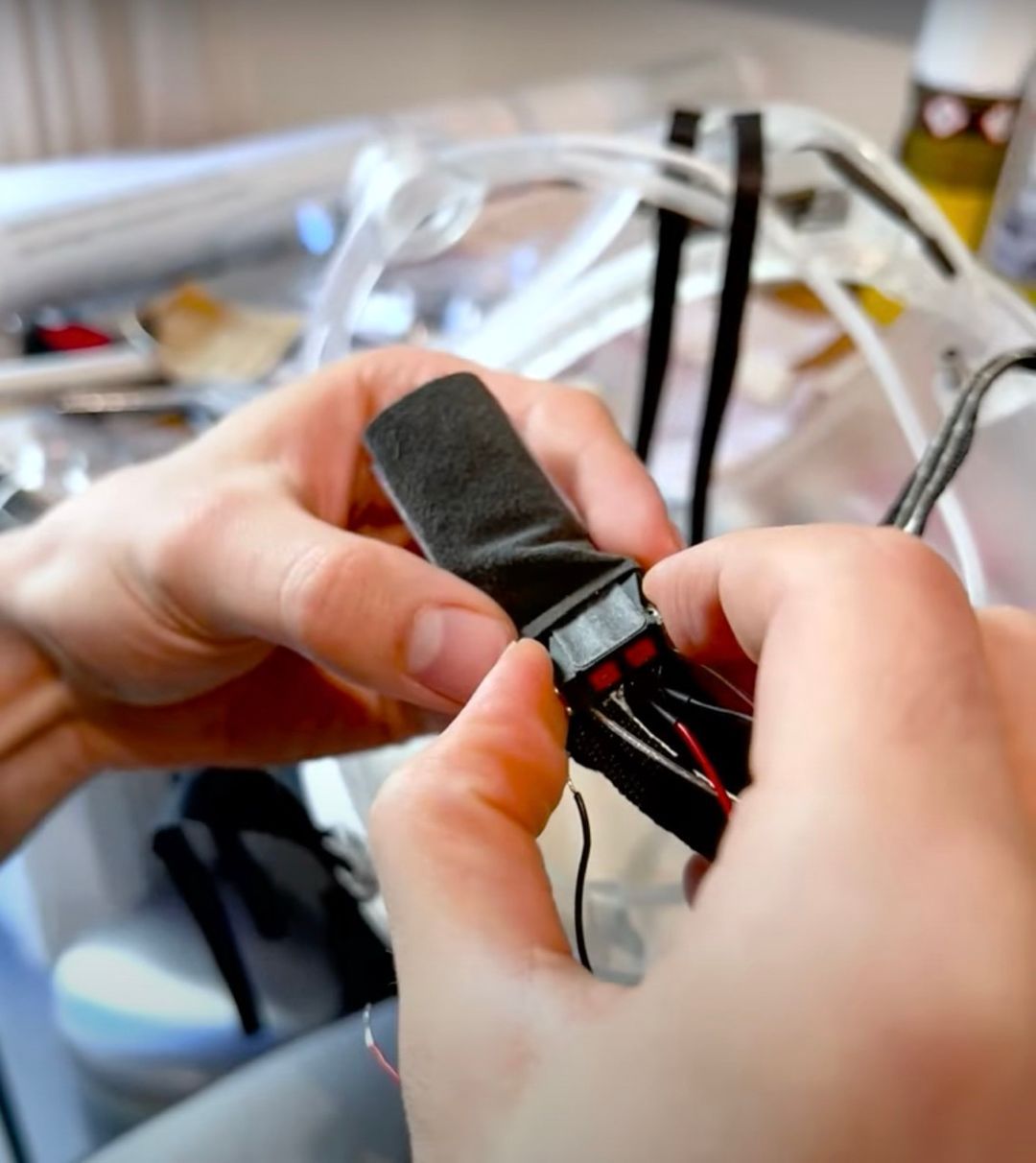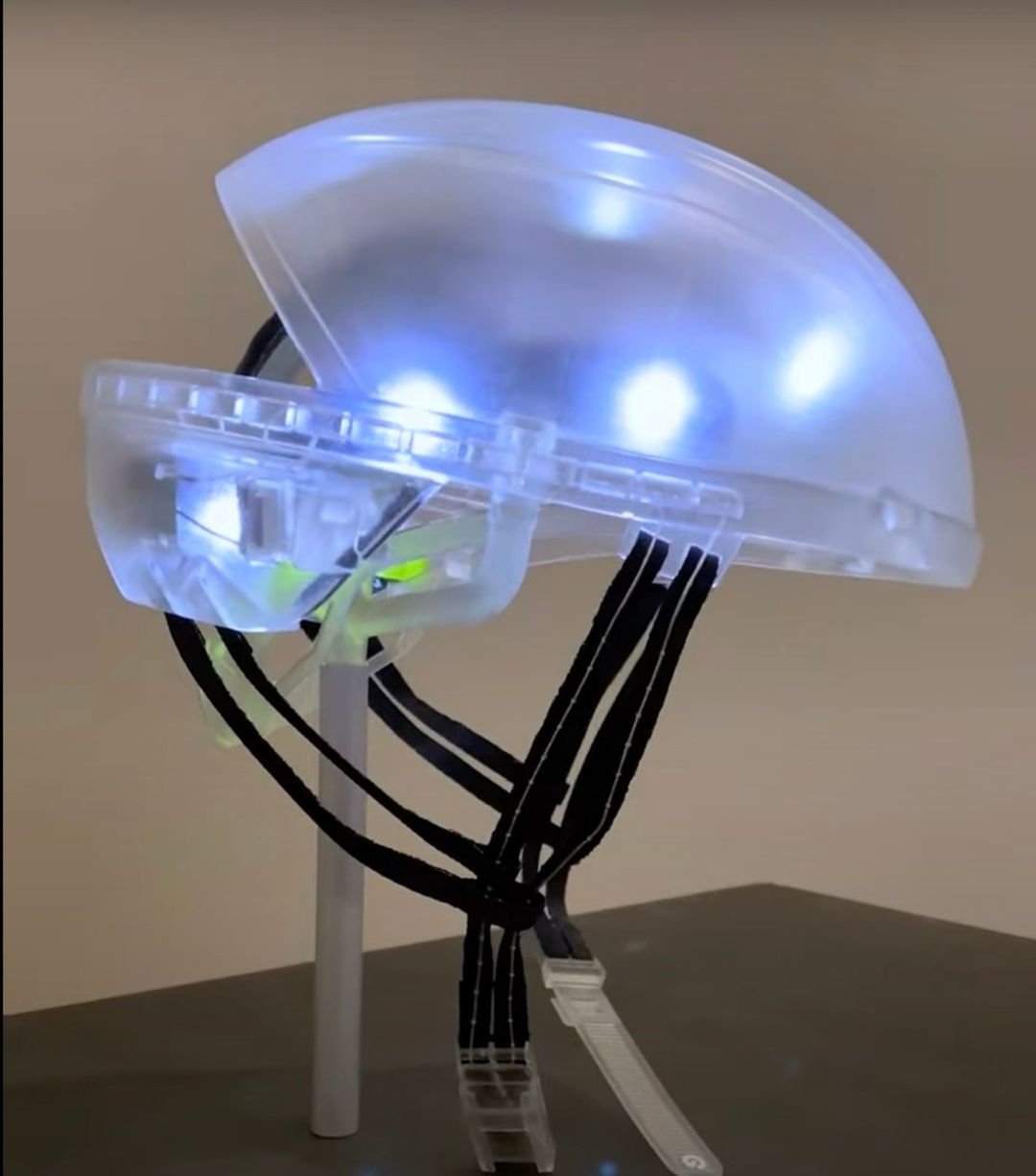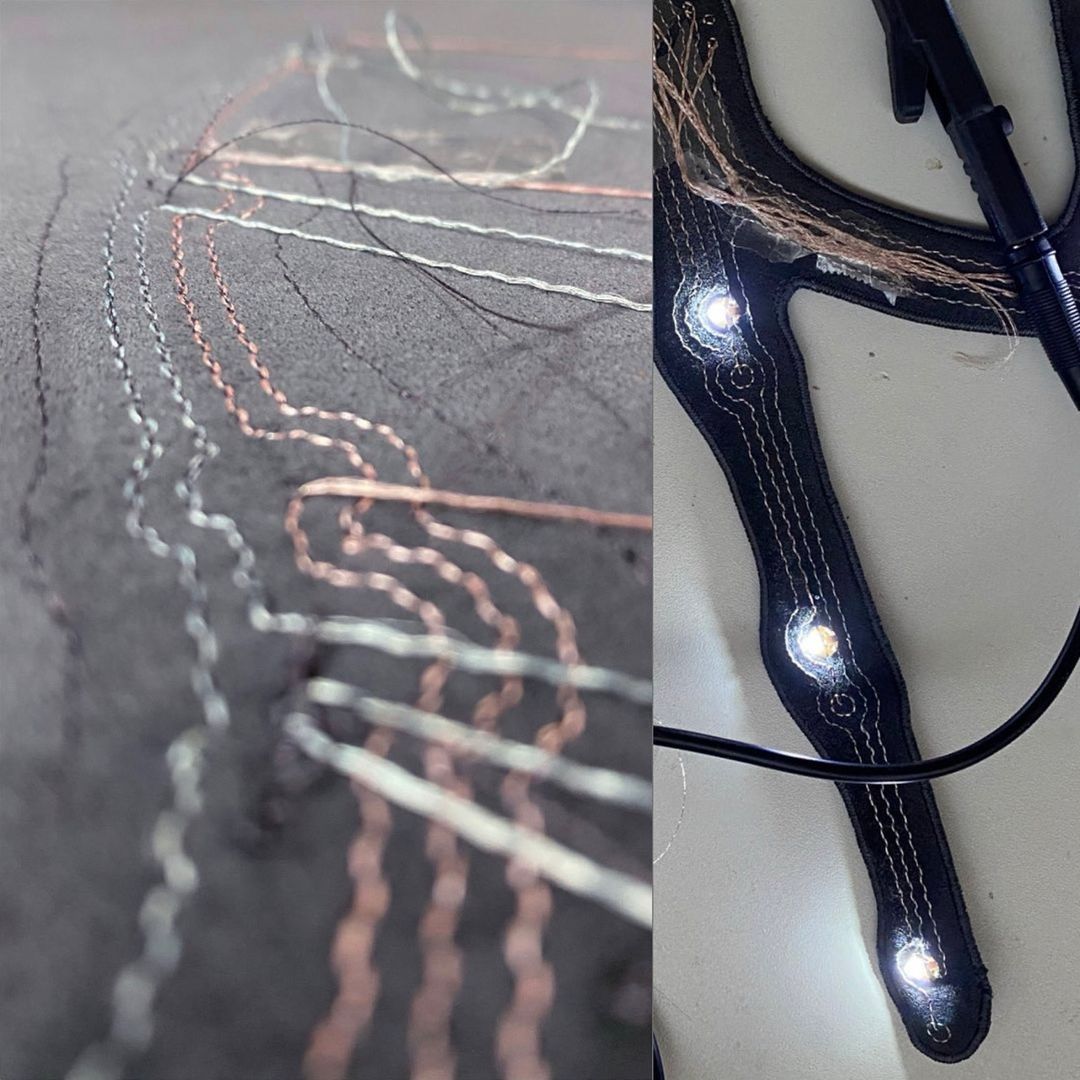All projects
SMARTGUARD
SMARTGUARD
A smart helmet for improved road safety
A smart helmet for improved road safety
Author(s)
Bernhard Büttner
HTW Berlin
,
2022
Build it yourself
Hapticlabs Satellite Arduino Nano VC actuator: Lofelt L5
Hapticlabs Satellite Arduino Nano VC actuator: Lofelt L5
Hapticlabs Satellite Arduino Nano VC actuator: Lofelt L5



Problem
Urban cyclists face significant risks due to the high rate of accidents, often resulting in severe injuries or fatalities. The existing safety gear, while somewhat effective, does not adequately address the dynamic needs of urban cyclists who navigate complex traffic environments.
Solution
SMARTGUARD is an advanced safety system integrated into cyclists' helmets. It uses smart textile technology to enhance protection and situational awareness through haptic feedback and other sensory alerts that inform the wearer of potential hazards.
Process
Concept and Inspiration: The inspiration for SMARTGUARD came from the alarming statistics on cycling accidents and the technological gap in current cycling safety equipment.
Development Stages: The project began with the identification of key risk factors for urban cyclists. This was followed by the design and prototyping of smart textiles that could be integrated into bicycle helmets.
Technical Implementation: SMARTGUARD features textile pressure sensors and a PPG sensor for vital signs monitoring. It utilizes configurable vibrations and visual alerts to communicate with the cyclist about imminent dangers.
Haptics
Challenges: A significant challenge was calibrating the sensory feedback to ensure it was noticeable without being distracting. It was crucial that the feedback mechanisms did not impair the cyclist's ability to concentrate on their surroundings.
Benefits: The haptic feedback system in SMARTGUARD significantly enhances the cyclist's ability to react to dangers promptly. By providing intuitive and non-intrusive alerts, the system helps prevent accidents and improves overall road safety.
Problem
Urban cyclists face significant risks due to the high rate of accidents, often resulting in severe injuries or fatalities. The existing safety gear, while somewhat effective, does not adequately address the dynamic needs of urban cyclists who navigate complex traffic environments.
Solution
SMARTGUARD is an advanced safety system integrated into cyclists' helmets. It uses smart textile technology to enhance protection and situational awareness through haptic feedback and other sensory alerts that inform the wearer of potential hazards.
Process
Concept and Inspiration: The inspiration for SMARTGUARD came from the alarming statistics on cycling accidents and the technological gap in current cycling safety equipment.
Development Stages: The project began with the identification of key risk factors for urban cyclists. This was followed by the design and prototyping of smart textiles that could be integrated into bicycle helmets.
Technical Implementation: SMARTGUARD features textile pressure sensors and a PPG sensor for vital signs monitoring. It utilizes configurable vibrations and visual alerts to communicate with the cyclist about imminent dangers.
Haptics
Challenges: A significant challenge was calibrating the sensory feedback to ensure it was noticeable without being distracting. It was crucial that the feedback mechanisms did not impair the cyclist's ability to concentrate on their surroundings.
Benefits: The haptic feedback system in SMARTGUARD significantly enhances the cyclist's ability to react to dangers promptly. By providing intuitive and non-intrusive alerts, the system helps prevent accidents and improves overall road safety.
Problem
Urban cyclists face significant risks due to the high rate of accidents, often resulting in severe injuries or fatalities. The existing safety gear, while somewhat effective, does not adequately address the dynamic needs of urban cyclists who navigate complex traffic environments.
Solution
SMARTGUARD is an advanced safety system integrated into cyclists' helmets. It uses smart textile technology to enhance protection and situational awareness through haptic feedback and other sensory alerts that inform the wearer of potential hazards.
Process
Concept and Inspiration: The inspiration for SMARTGUARD came from the alarming statistics on cycling accidents and the technological gap in current cycling safety equipment.
Development Stages: The project began with the identification of key risk factors for urban cyclists. This was followed by the design and prototyping of smart textiles that could be integrated into bicycle helmets.
Technical Implementation: SMARTGUARD features textile pressure sensors and a PPG sensor for vital signs monitoring. It utilizes configurable vibrations and visual alerts to communicate with the cyclist about imminent dangers.
Haptics
Challenges: A significant challenge was calibrating the sensory feedback to ensure it was noticeable without being distracting. It was crucial that the feedback mechanisms did not impair the cyclist's ability to concentrate on their surroundings.
Benefits: The haptic feedback system in SMARTGUARD significantly enhances the cyclist's ability to react to dangers promptly. By providing intuitive and non-intrusive alerts, the system helps prevent accidents and improves overall road safety.












Stay in the loop
Join our mailing list for occasional newsletters and the latest updates.
Stay in the loop
Join our mailing list for occasional newsletters and the latest updates.
Stay in the loop
Join our mailing list for occasional newsletters and the latest updates.


